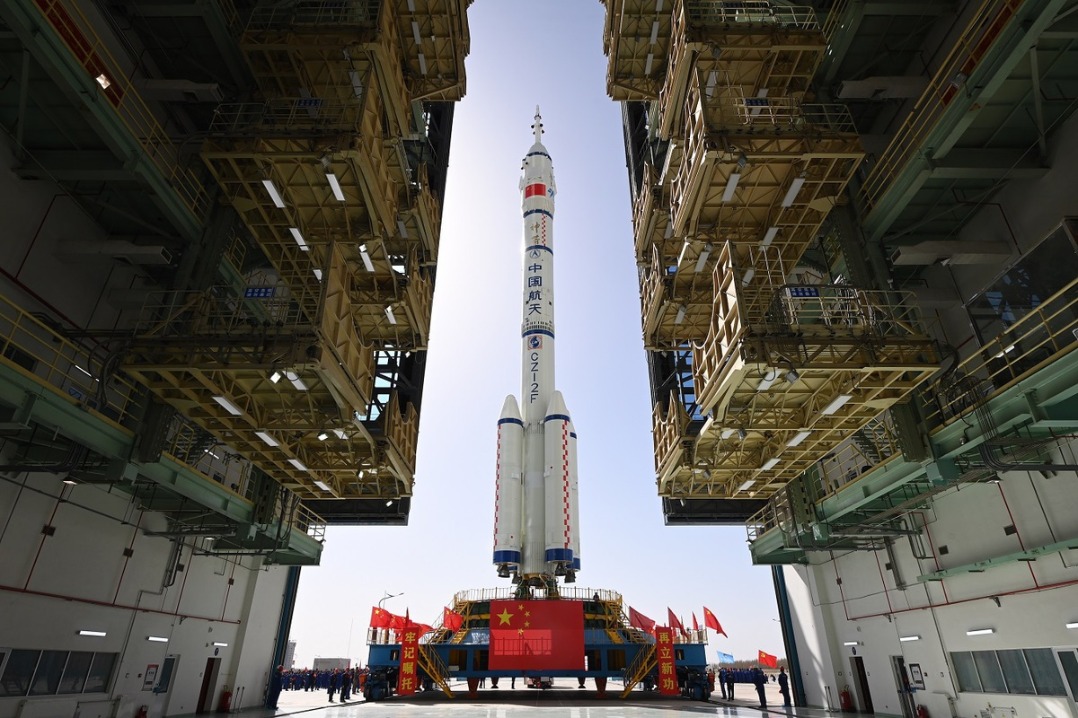Keep the dark side at bay
chinawatch.cn | Updated: 2020-01-16 13:32

For half a century, the internet has sparked unprecedented opportunities for human progress. But it has also presented more challenges to national security. We have seen more frequent national and sub-national shutdowns in times of national crisis and growing concerns over its security from internet pioneers.
In April 2019, following the Easter terrorist attacks by extremist militants, the Sri Lankan government temporarily blocked some social media networks and messaging apps, including Facebook, WhatsApp and Instagram. In November, the Iranian authorities shut down internet access across the country amid protests at fuel price hikes. In December, to curb protests over a controversial yet widespread new citizenship act, the Indian government shut off the internet in the states of Assam and Meghalaya, affecting 32 million users.
The internet is among the greatest inventions of mankind, but that it would have so many security loopholes was beyond everyone's expectations. In October 2019, Leonard Kleinrock, a computer science professor at the University of California, Los Angeles, said in an interview that they imposed no restrictions and took no protective measures as the initial idea was to provide open, free, innovative and shared access; however, they did not anticipate that the dark side of the internet would emerge with such ferocity. Because of these drawbacks, Tim Berners-Lee, father of the World Wide Web, officially initiated a "contract for the web" in November 2019, aiming to prevent the internet from becoming a "digital dystopia" full of nastiness and miseries.
Even though the technology itself is neutral, its users may have different intentions. Any technology is like a double-edged sword, and it can either be used to improve people's well-being, or be harnessed by criminals. The internet is no exception.
A new scientific and technological revolution and new industrial revolution are gathering momentum; emerging markets and developing countries are on the rise; and the digital economy is booming. All these have brought about tremendous changes to the politics, economy and social life of countries. The flip side, however, is that as global nuisances such as invasion of privacy, infringement of intellectual property rights, widespread racism, cyber fraud, false information and cyberterrorism loom large, national security faces more challenges, for the virtual attributes of cyberspace go beyond geographic boundaries.
From 1986 when the first computer virus was invented to 2010 when the Iranian nuclear facility was under attack by the computer worm Stuxnet, cyberattacks have gradually expanded in scope from local computer systems to the military field.
Since 2010, new technologies based on big data, cloud computing and machine learning have developed rapidly, leading to the rise of social platforms, along with the abuse of personal data, the proliferation of cyber weapons and the rising impact of cyber security on politics.
Security risks have spread to the whole of cyberspace. From a domestic perspective, cyberspace security corresponds to specific functions in different forms, involving electromagnetic equipment, information communication systems, operating data, and system applications. These devices, systems, data, and applications should be protected from attacks or from being used to jeopardize personal and national security.
From the international perspective, cyberspace has blurred or even eroded traditional national sovereignty borders, so that a country's policies often move beyond national borders and produce extraterritorial effects. With the absence of international cyberspace rules and mounting geopolitical tensions, international cyberspace governance is facing a serious deficit.
If the 1980s was the starting point of internet governance, then the 2003 United Nations World Summit on the Information Society marked the beginning of global cyberspace governance.
Now, although more than a decade has passed, cyberspace governance remains in its early stage. How to govern cyberspace, enjoy it and manage its risks is still open to discussion. Given the deep integration between reality and cyberspace, multilateral collaboration is required for cyberspace security governance, engaging all parties such as governments, international organizations, internet companies, technical communities, civil organizations and individual citizens.
In addition, the governance mechanisms of the United Nations, intergovernmental and non-governmental organizations should complement each other to establish a rule-based cyberspace order, and a fair and reasonable global cyberspace governance system.
Against the backdrop of deep integration and shared destiny, no countries can stay away from it, or take on all the challenges alone. Without joint participation, collaborations in cyberspace will not be possible. Without common development, the dividends of the digital economy cannot be shared in a wider range. Without joint collaboration, we will not be able to combat prominent global cyber threats.
Security, the abstract perception of being kept from danger or threat, is relative. There is no such thing as absolute security. First, openness is needed. The rapid development of the internet has benefited from open discussions in technology communities and access to resources. Openness is important to the vitality of cyberspace. Second, cooperation is needed, not only among different stakeholders, but also at different levels including bilateral, regional and international cooperation. The goal is to jointly build a platform for communication and collaboration, further complement resources and strengths, and formulate international rules. Last but not least, self-discipline is essential. When there are no international rules to follow, all users should restrain themselves and act as responsible stakeholders.























